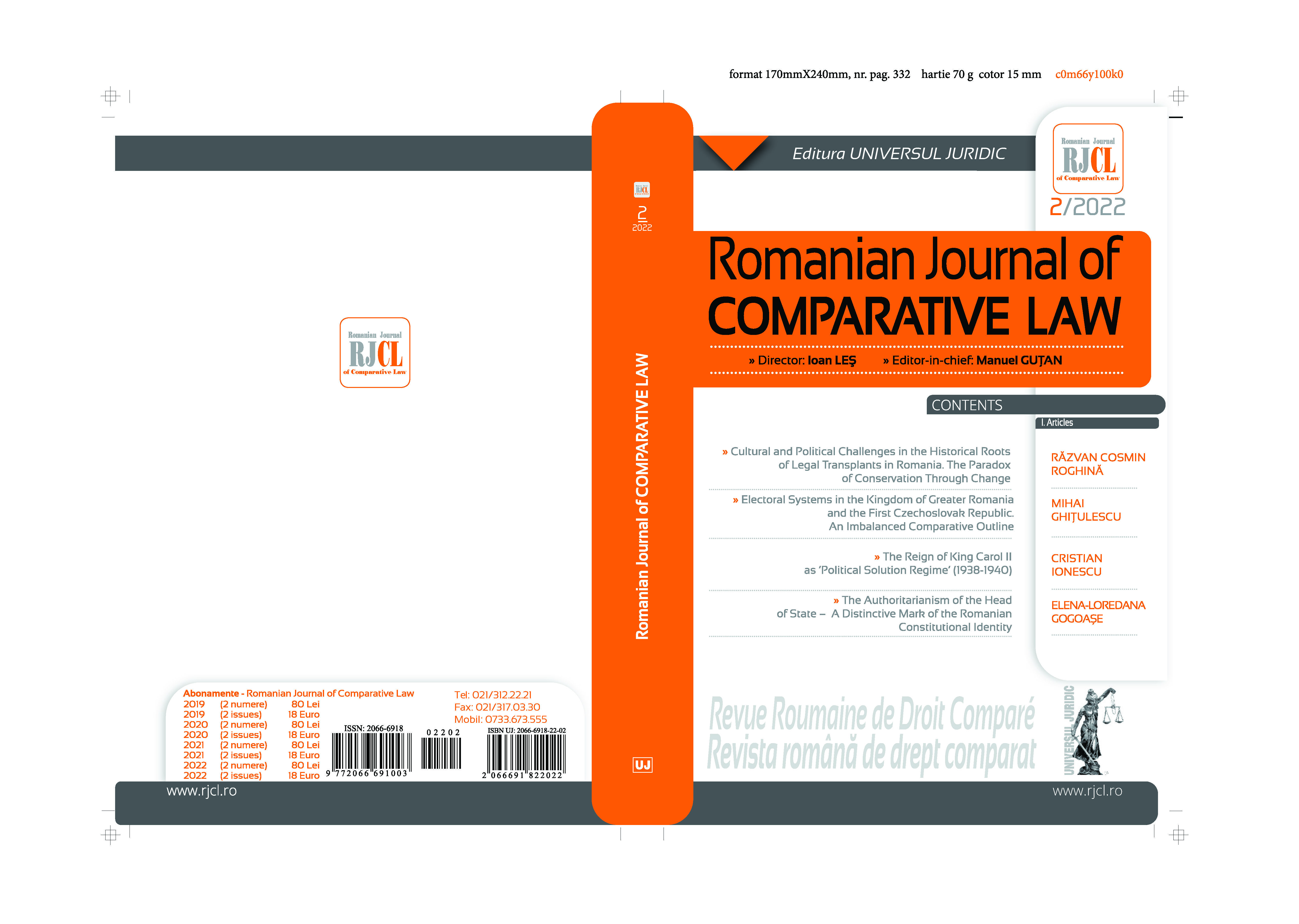The Reign of King Carol II as ‘Political Solution Regime’ (1938-1940)
The Reign of King Carol II as ‘Political Solution Regime’ (1938-1940)
Author(s): Cristian IonescuSubject(s): Law, Constitution, Jurisprudence, Constitutional Law, Civil Law, Political history, Government/Political systems, Interwar Period (1920 - 1939)
Published by: Universul Juridic
Keywords: political regime; authoritarian monarchy regime; King Carol II; constitutionalism; Constitution of 27 February 1938; bankruptcy of interwar parliamentary democracy;
Summary/Abstract: In this study, the author uses extensive documentary material, some of it unpublished yet, to try to outline the character of the political regime instituted by King Carol II in February 1938. It is well known that in Romanian historiography the reign of King Carol II has been described in different ways, from personal dictatorship to authoritarian monarchy. The author points out that in the 1930s, the democratic institutions created by the liberal Constitution of 1923 were seriously eroded, primarily due to the inability of the political parties and, in general, of the Romanian democratic parliamentary system to find solutions to the serious economic, political and social problems faced by each political party in government and by the country as a whole. The author considers the political regime established by King Carol II to be a Caesarist regime, a regime of active or authoritarian monarchy. In addition, the study also shows the internal and external causes and conditions of the establishment of this regime. The author concludes that the political regime in place during the reign of King Carol II was a 'political solution type regime' to save the country from the Legionary threat. At the same time the author analyses, on the basis of numerous bibliographical sources, many of which used for the first time in this study, the content of the Constitution of 27 February 1938. In conclusion, the author considers that the political regime of monarchical authority instituted by King Carol II in February 1938 must also be framed, analysed and understood in the light of the spirit and practice of European constitutional law at the time.
Journal: Revista Română de Drept Comparat
- Issue Year: 2022
- Issue No: 02
- Page Range: 261-330
- Page Count: 70
- Language: English
- Content File-PDF

